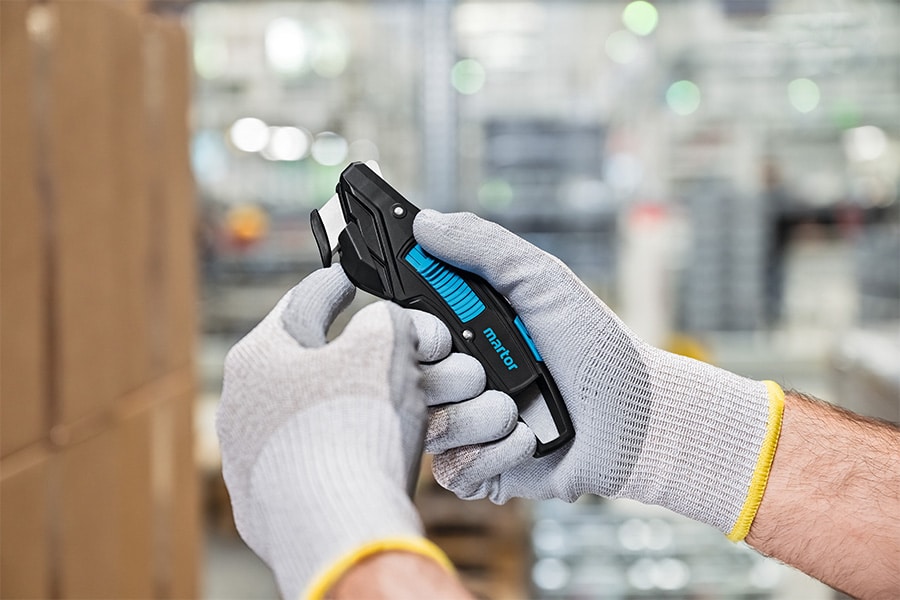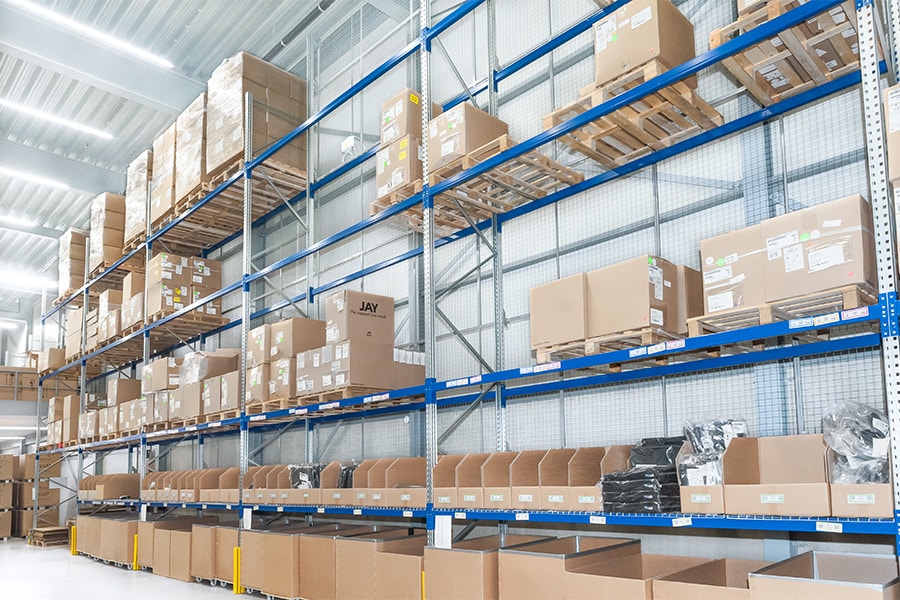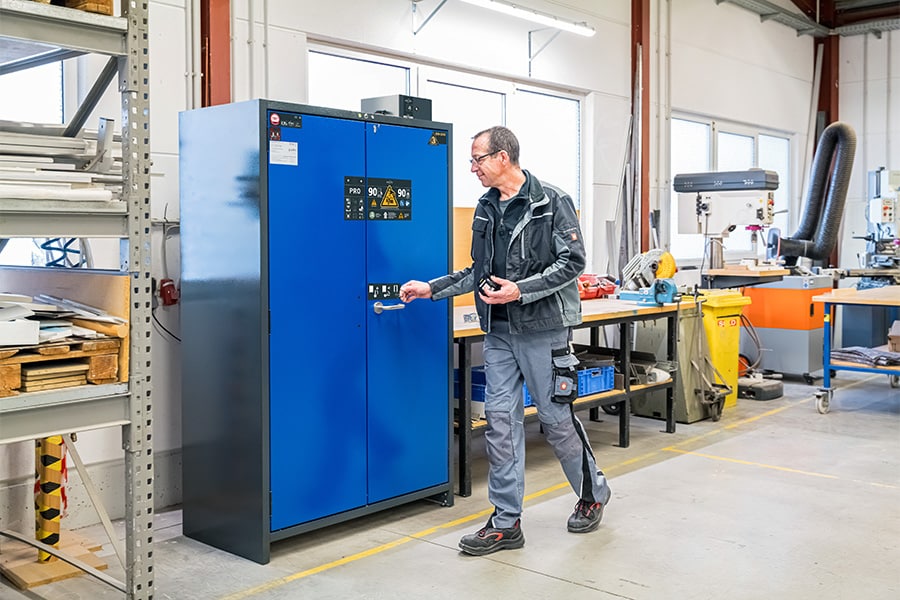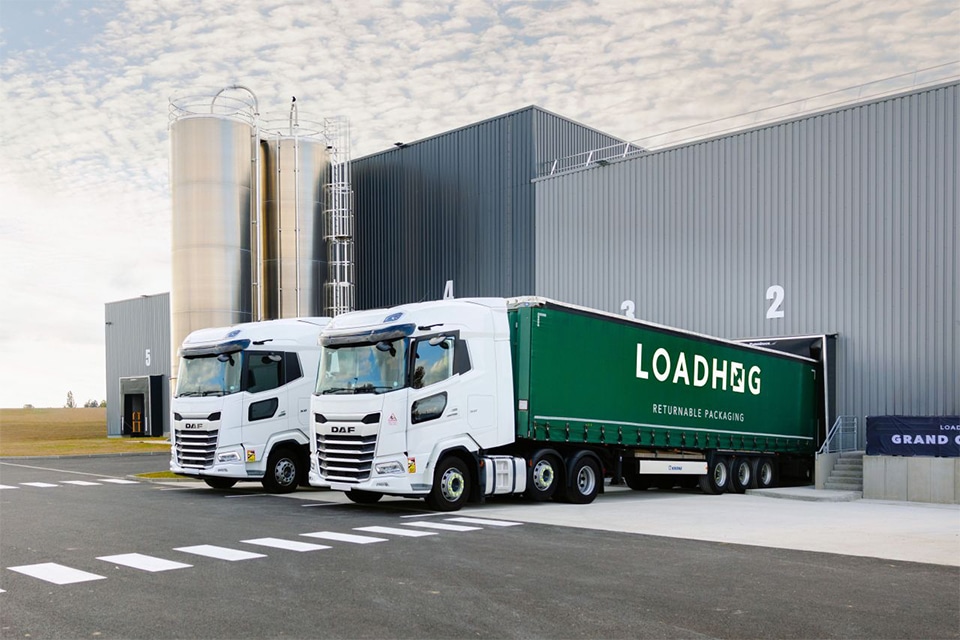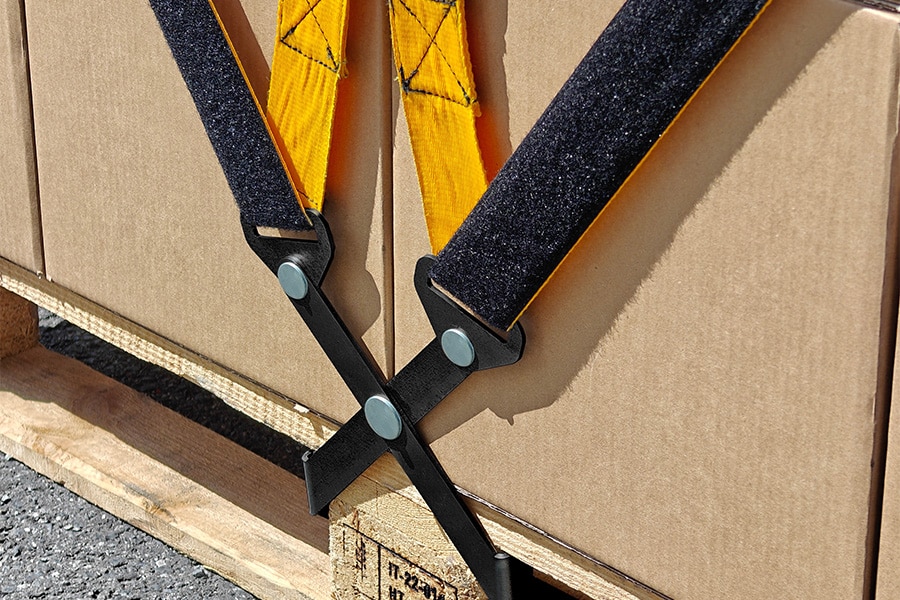
return2sender pioneers eco-friendly and affordable transport packaging
In transportation and logistics, stretch film has been taken for granted for decades. But that comes at a price: a huge waste mountain, tons of CO2 and skyrocketing costs. The ambitious start-up return2sender is radically changing course. With Elvis - a reusable, circular pallet wrap - founders Johan Bonner and Adriaan Debruyne together with CEO Willem Walravens propose a disruptive solution that is ready for the PPWR regulations of 2030 and beyond. “We developed Elvis because things simply must and can be done better,” they chorus.
“In Europe, we use hundreds of millions of single-use films to wrap pallets every year. Per pallet, that accounts for more than 2.5 kilograms of CO2 emissions,” says Johan Bonner. “Convert that and you end up with over 500 million kilograms of CO2 per year just for securing loads.”
The financial impact is equally great. The total cost of stretch film - material, labor, waste disposal - runs as high as 1.50 to 3.60 euros per pallet. “And that's for a material that you throw away after one trip,” Bonner said.
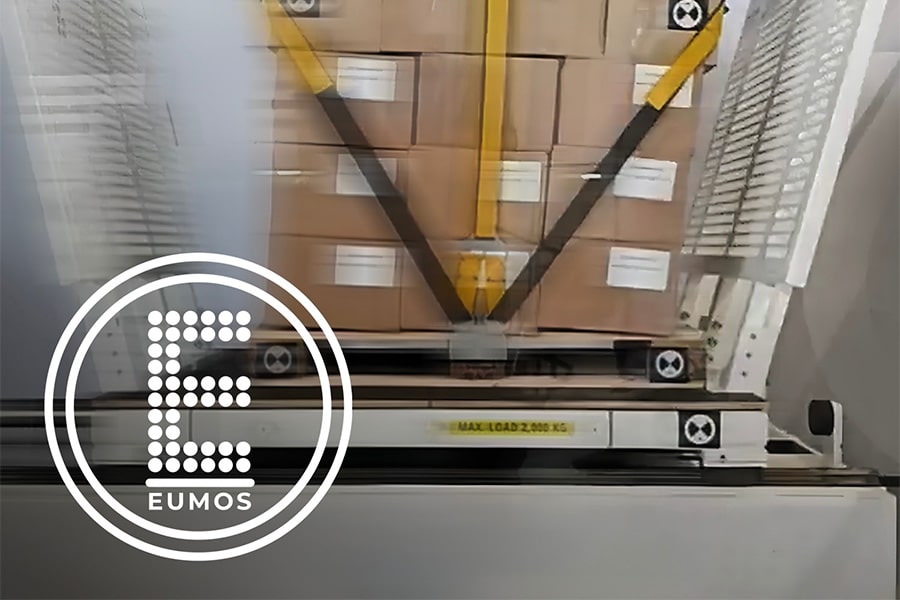
Elvis: innovative packaging alternative
With Elvis, return2sender offers a reusable alternative that lasts more than one hundred cycles. The wrap is EUMOS 40509-certified and designed for maximum load stability, even during intensive transportation.
“Elvis is not a compromise. It is safer, faster and more durable than film,” confirms Willem Walravens. “One person applies the pallet wrap in less than a minute, without a machine. Two ergonomic pulling motions and the load is locked in place.”
Thanks to its clever design, the wrap can be used flexibly. “We make sure that Elvis is as versatile as possible within the same company or sector,” Walravens adds. “From retail to pharma: we make sure it fits, both physically and operationally.”
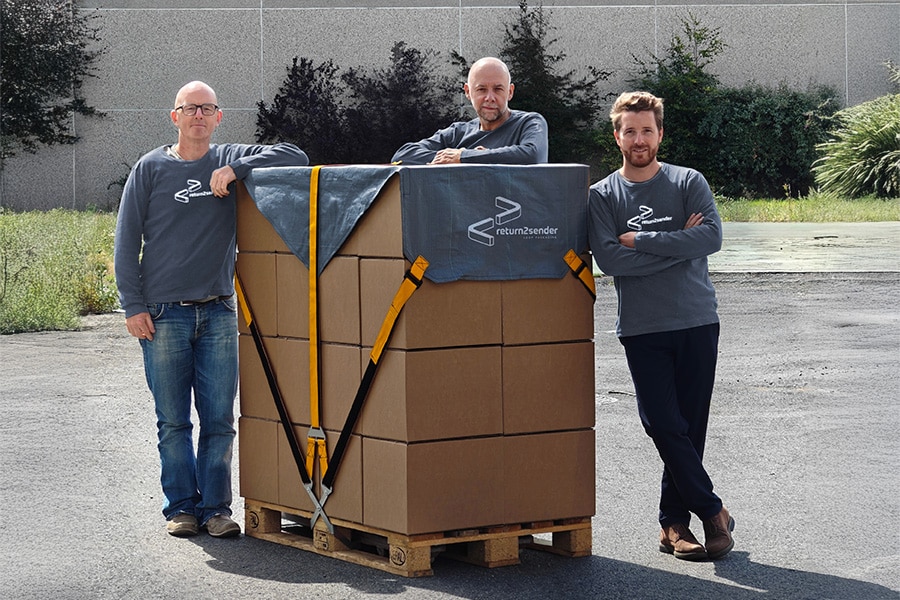
Less damage, less CO2, less cost
Just as a three-point seat belt in a car protects human lives, Elvis ensures the safety of transport loads. Johan Bonner explains: “Unstable loads are a major risk in the logistics chain. They not only cause accidents on the road - accounting for more than 25 percent of transport incidents - but also cause significant damage to goods. And that has a direct impact on businesses: damaged or shifted goods are often rejected upon delivery or returned, leading to additional transportation costs, product loss and delays in the supply chain.”
With its certified stability and firm fixation, Elvis acts as a ‘safety belt’ for pallets. “Our solution holds the load tightly in place, even during intensive transportation or repeated handling. This not only increases safety, but also reduces damage claims, downtime and repacking,” Bonner said.
Less damage also means less waste. “Goods that don't arrive broken don't have to be remanufactured or repackaged,” Walravens points out. “This provides significant gains in terms of CO2 reduction. Combine that with the fact that Elvis itself is reusable and generates up to 95 percent less packaging waste, and the picture is right: safe, sustainable and economically smart. And you don't have to wait until 2030 to be PPWR-compliant (Packaging and Packaging Waste Regulation, nvdr). You already are today.”
From possession to use, with social impact
The circular model goes beyond reuse. In addition to sales, return2sender also offers repair and cleaning, in partnership with custom companies. “We make sure every Elvis stays in circulation as long as possible,” says Walravens. “And we create sustainable jobs for people with a distance to the labor market. The social component is at least as important to us.”
Currently, the company is also testing a product-as-a-service formula where customers pay per use. “We want to lower the threshold to circular packaging. It has to be easy, cost-effective and scalable,” Walravens said.
Test yourself? Pilot projects are in full swing
For companies looking to make their logistics processes more sustainable without disruption, return2sender launches pilot projects. “We come along, show the pallet wrap and together we develop a pilot project tailored to your needs,” says Walravens. “Not theory, but practice. You immediately discover what Elvis means on the shop floor and on the road.”
From idea to impact
Elvis was born in 2024 from an experiment with an old bigbag. “What if we turned waste into something that performs better than the original?” was the question with which Johan Bonner, Adriaan Debruyne and Willem Walravens started the innovation project. Today, the idea has grown into a company with a patented solution that performs in real logistics environments.
“Elvis is a solution that saves costs, increases safety and makes sustainability tangible. Exactly what the industry needs right now,” Walravens concludes.
